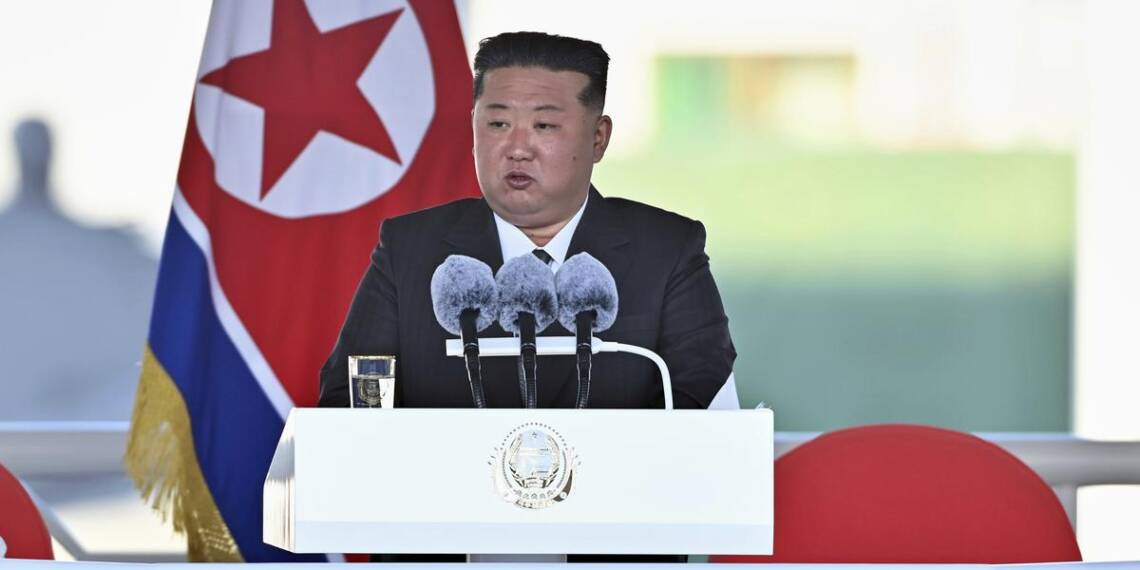North Korea’s armed forces have made significant advances in both nuclear and conventional capabilities following their controversial involvement in the ongoing Russia-Ukraine war, according to a recent intelligence assessment by Ukraine’s HUR (Main Directorate of Intelligence). The six-month deployment of North Korean troops to Russia’s frontlines has offered Pyongyang a real-time battlefield laboratory to refine weapons, tactics, and overall warfighting capabilities.
War as a Training Ground
The report, first shared with The Times, paints a concerning picture of how North Korea has leveraged its participation in the Ukraine conflict. With approximately 9,500 troops reportedly engaged in combat—often in so-called “human wave” attacks—North Korea has sustained nearly 4,000 casualties, yet continues to expand its presence, with an estimated 30,000 troops expected to be deployed in the coming months.
“Cooperation with Russia has offered North Korea broad opportunities to modernize its armed forces,” the HUR states. This includes improved accuracy in ballistic missile systems, an operational drone warfare program, modern weapons production lines, and bolstered naval and intelligence-gathering capabilities.
Strategic Alliance with Russia
The strengthening military alliance between North Korea and Russia has alarmed Western defense circles. During a recent high-profile visit by Russian Foreign Minister Sergey Lavrov to North Korea, Kim Jong-un offered “unconditional support” for Russia’s war effort. Lavrov, in turn, expressed gratitude—going as far as hugging Kim in public—as a gesture of appreciation for the troops and weapons Pyongyang has supplied.
North Korean sappers and military construction personnel are now being sent to reinforce the Kursk region, where Ukrainian counteroffensives have been particularly intense. This unprecedented level of foreign deployment marks a drastic evolution in North Korea’s military posture.
Growing Regional Tensions
The military deepening between Russia and North Korea has sparked increased coordination between South Korea, the United States, and Japan. On July 11, top military officials from the three countries convened in Seoul to address the growing threat. During their trilateral meeting, the allies also conducted a joint aerial drill featuring a U.S. B-52H strategic bomber, directly responding to North Korea’s escalating nuclear and missile threats.
“We urge the DPRK to immediately cease all unlawful activities destabilizing the region,” read a joint statement issued by the defense chiefs of the three nations. “We remain committed to enhancing collective defense and deterrence.”
Pyongyang’s Bold Stance
In response, North Korea issued a fiery statement through its state-run Korean Central News Agency (KCNA), calling the trilateral exercises “provocative” and threatening “grave consequences.” A senior official from the North’s Ministry of Defense declared that the country would not tolerate any act that undermines its security, signaling a potential for further military escalation.
North Korea’s newfound combat experience and its deepening military relationship with Russia have raised fresh concerns that Moscow could reciprocate with advanced military technology. Analysts warn that such exchanges could accelerate Pyongyang’s nuclear weapons development, a red line for many in the international community.
Strategic Implications
The developments highlight a shifting geopolitical landscape in which autocratic states are increasingly cooperating militarily in ways that defy conventional international norms. North Korea’s participation in the Ukraine war not only defies UN Security Council resolutions but also signals a more aggressive foreign policy doctrine under Kim Jong-un.
“This is no longer a rogue state in isolation,” says Dr. Min-jun Lee, a military strategist at the Korea National Defense University. “North Korea is evolving into a battlefield-hardened force with actual war experience, and that makes them far more dangerous.”
As the conflict in Ukraine continues to evolve, the strategic alliance between Russia and North Korea will remain a key flashpoint, one that could redraw the lines of deterrence and defense not only in Eastern Europe but also across the Asia-Pacific region.








